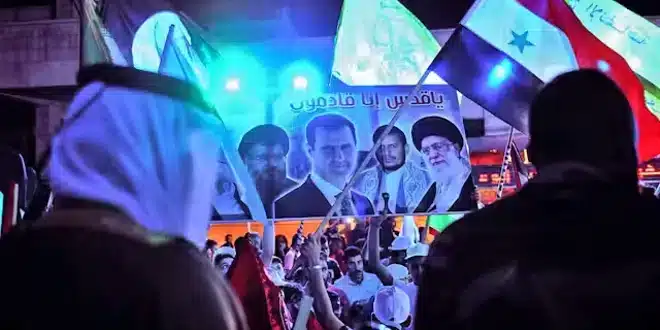Hezbollah is currently in a weakened state and unable to defend former Syrian President Bashar Assad from the rapid insurgency that removed him from power. With Assad’s departure, Hezbollah, a militant group based in Lebanon, finds itself in an even more compromised position.
The group suffered significant losses during a 14-month conflict with Israel. The fall of Assad, who had close ties with Iran, has now disrupted Hezbollah’s essential weapons supply route through Syria.
Hezbollah officials, while concerned, remain defiant. Lebanese lawmaker Hassan Fadlallah, representing Hezbollah’s political wing, acknowledged the significant changes in Syria, but assured that these events would not weaken their resolve.
Analysts believe this reduction in Hezbollah’s power will have major implications for Lebanon, where Hezbollah has been a dominant political force, and for Iran, which has used Hezbollah as a proxy to extend its influence across the Middle East. Israel also benefits from this shift, as Hezbollah, its adversary on the northern border, is now at its weakest in decades.
The Assad regime played a critical role in Hezbollah’s rise to power, providing a conduit for Iranian weapons and a place for training fighters. In return, Hezbollah supported Assad during the Syrian civil war by sending thousands of fighters to aid his forces.
As insurgents captured Homs and advanced towards a Syrian border town with a Hezbollah presence, many expected fierce resistance. However, Hezbollah was disorganized due to the loss of key leaders, including Sayyed Hassan Nasrallah, in Israeli airstrikes, and the destruction of much of its military infrastructure. With Russia and Iran not intervening, Hezbollah retreated, and Assad was quickly overthrown.
The fall of the Assad regime marks the end of Iran’s influence in Syria and Lebanon, according to Lt. Col. Fares al-Bayoush, a Syrian army defector.
In Lebanon, the weakening of Hezbollah has allowed the Lebanese army to reassert control, particularly along the southern border. A U.S.-brokered ceasefire between Hezbollah and Israel calls for Hezbollah to have no armed presence along this border, leading to increased demands within Lebanon for the group to disarm.
Samir Geagea, leader of the Christian Lebanese Forces Party, urged Hezbollah to transition into a political party and cease its armed activities.
The weakening of Hezbollah has also caused friction within Lebanon’s political sphere. Many Lebanese are critical of Hezbollah, accusing it of breaking its promise to use its weapons only for Lebanon’s defense by launching rockets into Israel last year following a Hamas attack.
The war with Israel resulted in significant casualties and displacement in Lebanon, with more than 4,000 people killed, over 1 million displaced, and extensive economic damage.
The changing dynamics in Syria mean Hezbollah faces an entirely new reality, according to Firas Maksad of the Middle East Institute. Some former allies of Hezbollah in parliament are now distancing themselves from the group.
Jebran Bassil, representing the Free Patriotic Movement, suggested that Hezbollah’s loss of an Iranian weapons pipeline could help Lebanon disengage from regional conflicts and focus on internal affairs.
With the fall of Assad, Iran has lost control of a strategic land corridor that facilitated the supply of weapons to Hezbollah. Aron Lund of Century International notes that while some smuggling might continue, it will not be on the same scale as before.
For Israel, the disruption of Iran’s regional network is a significant victory, although it remains cautious of the Islamic militants among the insurgents who toppled Assad. Israel has temporarily moved troops into a demilitarized zone with Syria for security reasons.
Israeli Prime Minister Benjamin Netanyahu described Assad’s fall as a historic event, attributing it to Israel’s decisive actions against Hezbollah and Iran, Assad’s primary supporters.


